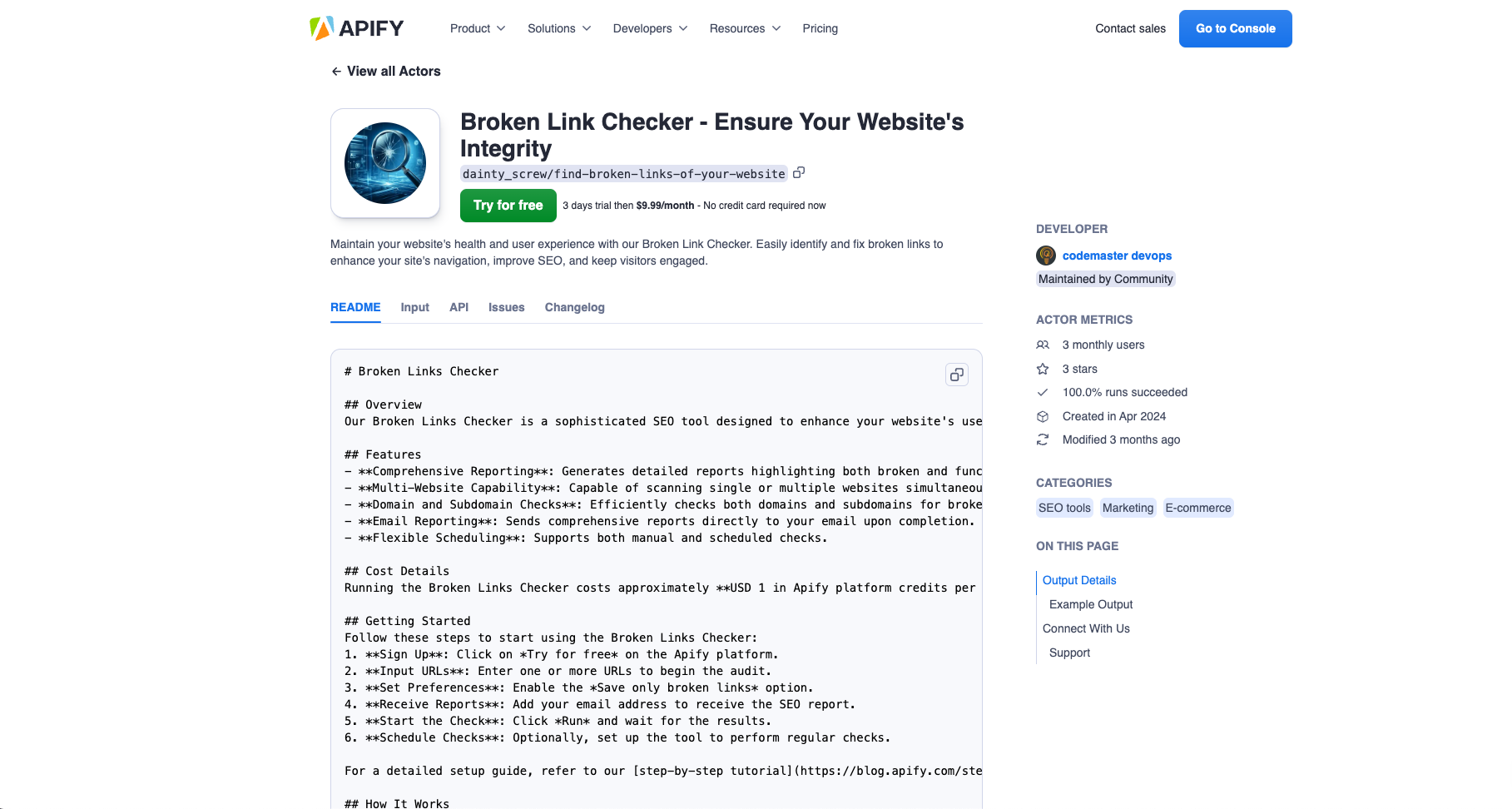Best Website Broken Link Checker: Your Ultimate Guide
Introduction
“Ever clicked on a link only to land on a dead page? Frustrating, isn’t it?” We’ve all been there, and as a website owner, the last thing you want is to give your visitors that experience. Broken links can hurt your site’s reputation and SEO rankings. But don’t worry, we’ve got you covered! In this guide, we’ll dive into the best website broken link checker tools to help you keep your site running smoothly.
Table of Contents
- Why Broken Links Matter
- Top Broken Link Checker Tools
- How These Tools Make Your Life Easier
- Who Should Use These Tools?
- Pros and Cons
- Key Takeaways
- Frequently Asked Questions
- Conclusion
1. Why Broken Links Matter
Broken links aren’t just tiny hiccups; they can significantly impact your website’s performance.
SEO Impact
Search engines like Google frown upon broken links. They can lead to lower rankings, meaning less visibility for your site.
User Experience
No one likes landing on a 404 error page. It disrupts the user’s journey and may cause them to leave your site altogether.
“A single broken link can turn a visitor away forever.”
2. Top Broken Link Checker Tools
Apify Broken Link Checker

Apify offers a powerful broken link checker that scans your entire website efficiently.
- Comprehensive Scanning: Checks all pages, including subdomains.
- Detailed Reports: Provides easy-to-read reports highlighting broken links.
- Flexible Scheduling: Set it up to run scans automatically.
Dead Link Checker
Dead Link Checker is a user-friendly tool that helps you find broken links quickly.
- Multi-Site Scanning: Scan multiple websites at once.
- Auto Scheduling: Set up regular scans without manual intervention.
- Email Notifications: Get results delivered straight to your inbox.
W3C Link Checker
The W3C Link Checker is a free tool that checks the validity of links on your webpage.
- Deep Scanning: Examines internal and external links.
- Customization: Offers advanced options for detailed scans.
- No Installation: Use it directly from your browser.
3. How These Tools Make Your Life Easier
Manually checking every link on your site? That’s a no-go. Here’s how these tools simplify the process:
Time-Saving Automation
Set up automatic scans and let the tools do the heavy lifting while you focus on other tasks.
Comprehensive Reports
Get detailed reports that pinpoint exactly where the broken links are.
Improved SEO and User Experience
Fixing broken links boosts your site’s credibility with both users and search engines.
“Less time worrying about broken links means more time improving your site.”
4. Who Should Use These Tools?
Broken link checker tools aren’t just for experts. They’re beneficial for:
Website Owners
Keep your site in top shape without needing technical expertise.
Content Managers
Ensure all your content links are up-to-date and functional.
SEO Specialists
Maintain optimal site health to improve search engine rankings.
Web Developers
Quickly identify and fix link issues during site development.
5. Pros and Cons
Pros
- Easy to Use: User-friendly interfaces make scanning a breeze.
- Detailed Insights: Comprehensive reports help you act quickly.
- Automation: Schedule scans to run automatically.
- Improved SEO: Fixing broken links can boost your rankings.
Cons
- Learning Curve: Advanced features might take time to master.
- Resource Intensive: Scanning large sites can be time-consuming.
6. Key Takeaways
- Broken links harm user experience and SEO rankings.
- Using a broken link checker simplifies site maintenance.
- Regular scans keep your website healthy and visitors happy.
- Choose a tool that fits your needs and technical comfort level.
7. Frequently Asked Questions
How do I check for broken links on my website?
Use tools like Apify Broken Link Checker or Dead Link Checker to scan your site automatically.
Can fixing broken links improve my SEO?
Absolutely! Search engines prefer websites with functional links, which can improve your rankings.
Is it necessary to check external links?
Yes, broken external links can also affect user experience and SEO.
How often should I run a broken link check?
It’s recommended to run a scan at least once a month or whenever you update your site content.
8. Conclusion
Maintaining a website doesn’t have to be a headache. By regularly using a broken link checker, you ensure a smooth experience for your visitors and keep the search engines happy. So why wait? Start scanning and keep your site in tip-top shape!
Ready to make broken links a thing of the past?

